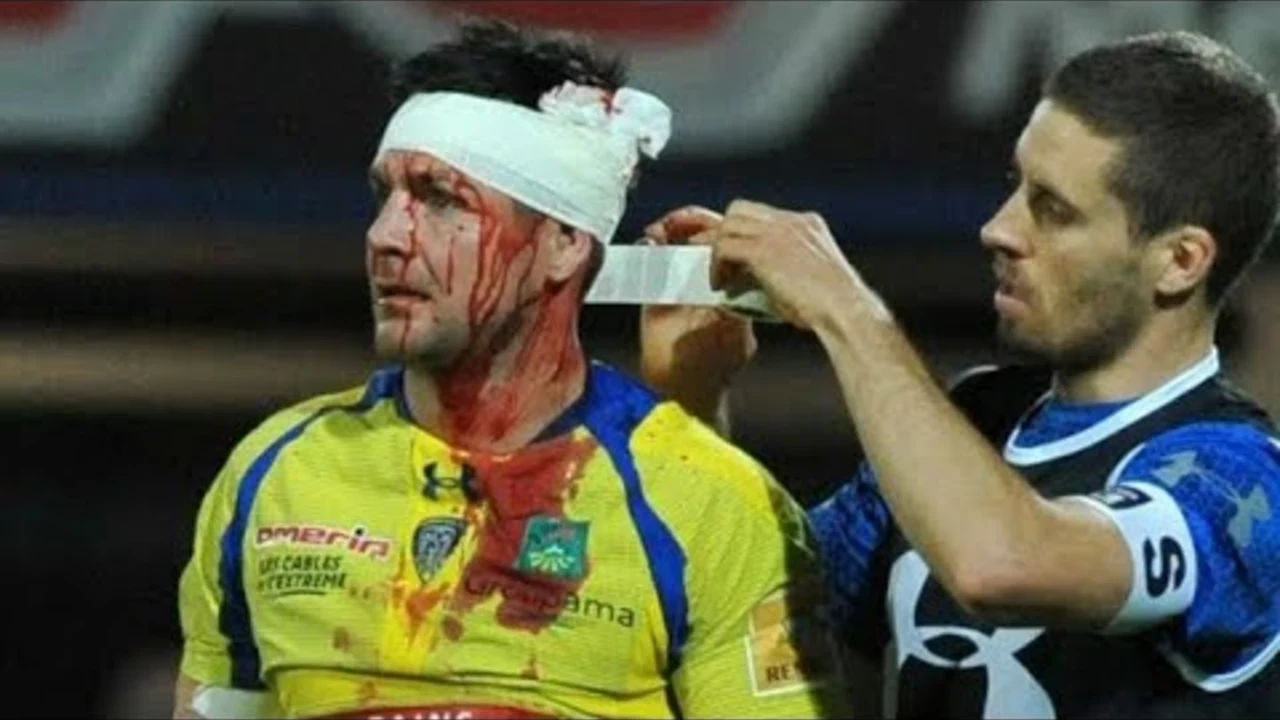
Peering into the Trenches: The Dark Side of Rugby
If you can't find me on any given day, there's a good chance I am either playing with my golden retriever, Baxter, or watching rugby. Yep, I'm a big fan. From my comfy perch in Sydney, I follow the games, the players, the hits and the thrilling moments. But there is a darker side to this beloved sport of mine that often gets ignored: Brain injuries among rugby players. Is it common? Unfortunately, more than you would want to know. But let’s dive in and take a serious look at what those oval-shaped balls sometimes entail.
Surfacing the Unseen: Understanding Brain Trauma
Even Baxter, with his fluffy tail and love for all balls, gets it. He gets nervous when the rugby ball bounces too hard. Well, it's not only about the ball, rather it is about the human brain which is, unlike the visible bruises and broken bones, something well-hidden within our skull that can't show the pain it suffers. Concussions and worse, traumatic brain injuries, are real threats in contact sports like rugby. The sheer physicality of the game, the hits, tackles, and collisions increase the potential for damage to the brain. Despite the protection offered by the skull, sudden impacts can damage the brain tissue, leading to injuries that can have long-term effects.
A Slippery Slope: The Concussion Controversy
Safe to say, Baxter doesn't understand the rules of rugby, but even he knows that hitting his head is not a good idea. This applies even more so to athletes, putting their health on the line. It's important to understand that not every knock on the noggin results in a brain injury. However, repetitive concussive and sub-concussive hits can lead to dreaded chronic traumatic encephalopathy or CTE. This degenerative brain disease is no laughing matter. Symptoms usually appear many years after the initial trauma and can include memory loss, depression, even suicidal behavior. It's like a horror movie that you wish was fiction, but it's reality.
Adding Up the Numbers: The Shocking Stats
Here's something that's got me as riled up as Baxter with a squirrel. According to a study from the University of South Wales, almost 45% of elite rugby players suffered a concussion in a single season. That's almost half! The figures are truly mind-boggling. One cannot simply ignore these numbers or casually shrug them off like a missed goal. The issue of brain injury is, undoubtedly, common among rugby players and needs to be addressed with utmost importance.
Pushing for Change: The Fight for Safety
Just as I wouldn’t let Baxter play on a busy road, we should be thinking of player safety on the pitch. There is a growing demand for changes to be implemented to reduce the risk of brain injury. Some suggest reducing the number of substitutions, monitoring players more closely for signs of concussion, altering tackle laws, and improving concussion protocols. Ensuring player safety does not mean robbing the sport of its essence; it simply adds another layer of respect and care to the game we all love.
Stepping Up: The Role of Players and Coaches
Remember when Baxter jumped into the sea chasing a seagull and I had to dive in after him? Lesson learned – he now knows not to chase birds. Likewise, players need to understand the hazards of brain injury and adjust their playing style accordingly. Coaches can help by creating a culture where players feel comfortable reporting concussions. More so, equip them to identify symptoms in themselves and others. Let's add safe to excitement, bravery, and courage as what defines a true rugby player.
Keeping Score: The Prevalence of Brain Injury in Other Sports
Other contact sports also share the stage with rugby in terms of concussion risk. American football, boxing, and ice hockey—these games too have a sadly high prevalence of brain injuries. Does that mean we should ban contact sports? Well, Baxter would probably say no (if he could talk), and so would I. There is a need for safer protocols, comprehensive research, and a change of mindset, but castrating the sports for their inherent contact nature wouldn't solve anything—it'd just rob us of the thrill and camaraderie these sports bring.
Shining A Light: The Future Outlook on Brain Injuries in Rugby
In the same way I keep an eye on Baxter during our playtime, sports bodies need to monitor this issue closely. Research is continuing, protective gear is evolving, concussion protocols are being refined—there's hope on the horizon. From this rugby-loving, Baxter-doting guy in Sydney, the future can be made safer for our athletes. So, is the brain injury common in rugby? Indeed. But we can do something about it. And in doing so, we won’t take the thrill out of the run, the glory out of the try, or the cheer out of the crowd. We’d simply add to the pride one has in playing and loving this game.
Comments